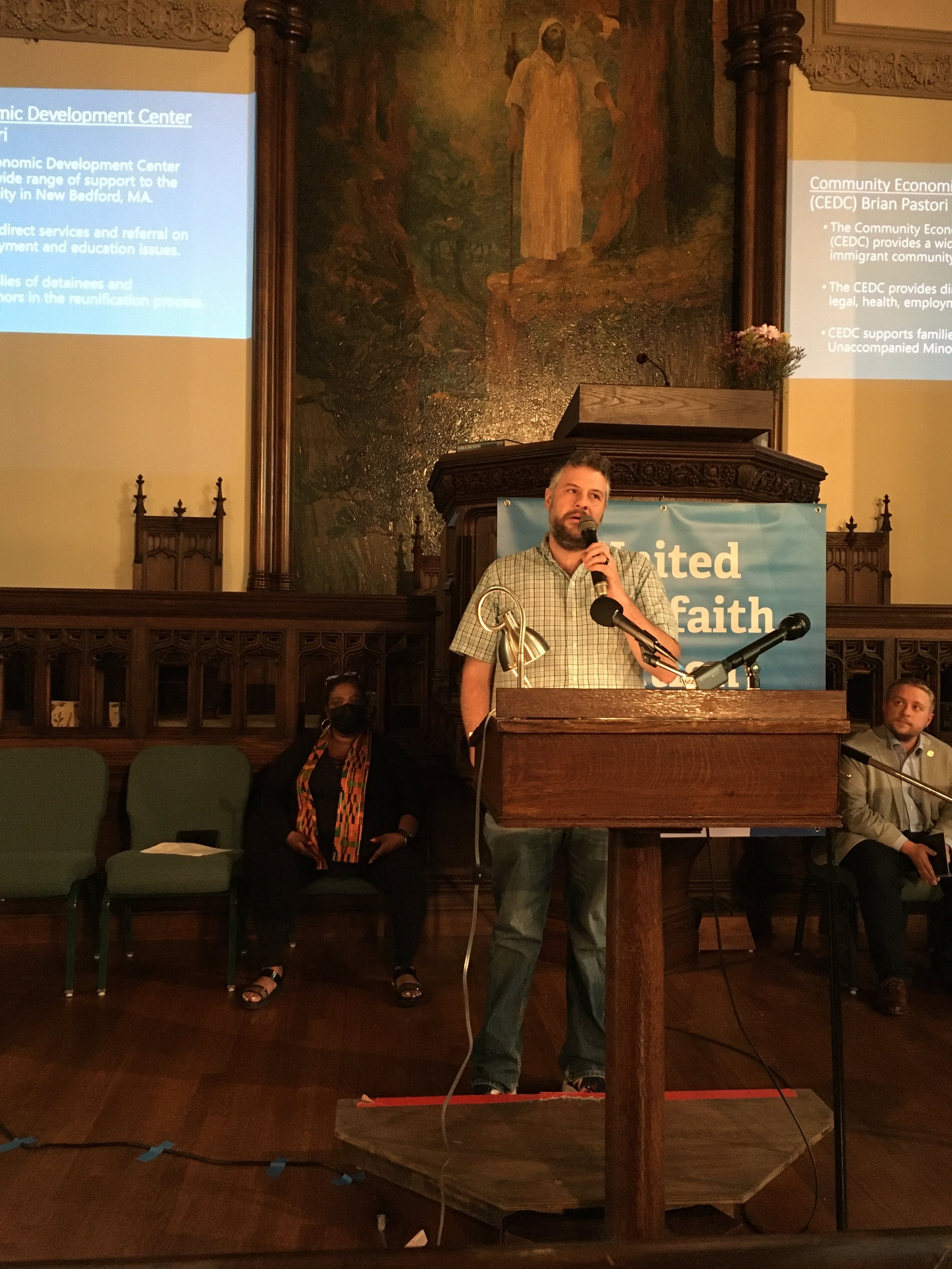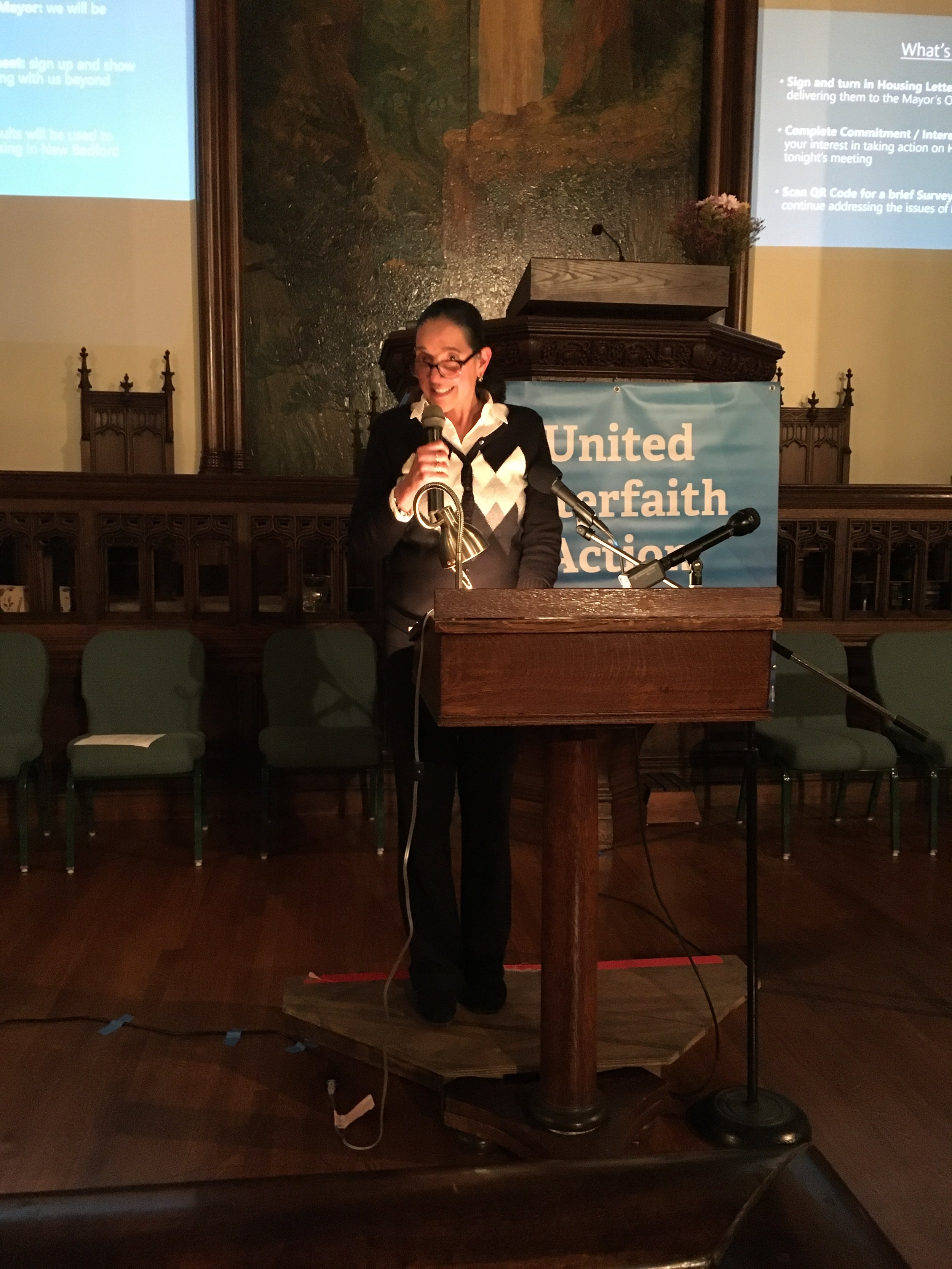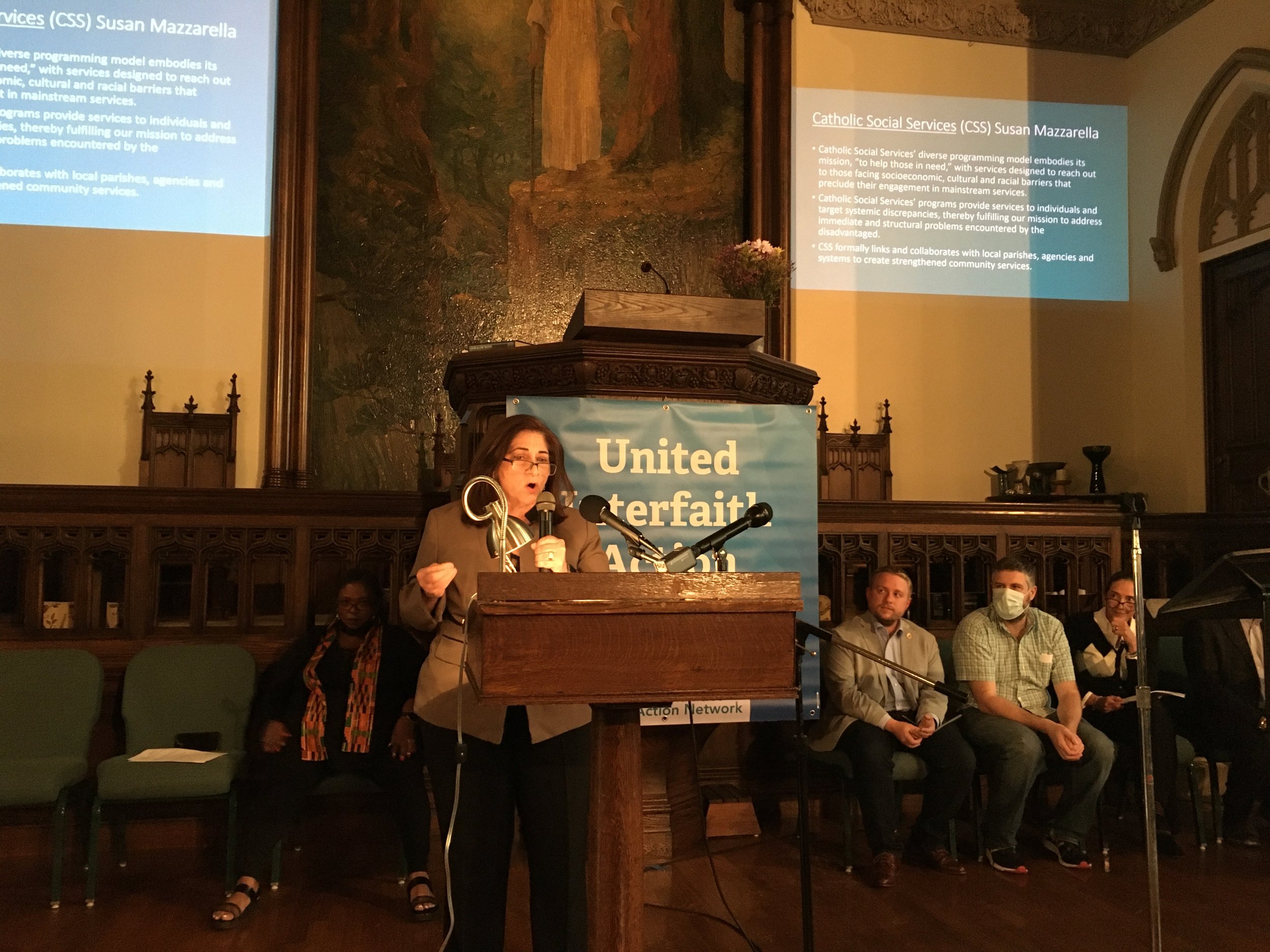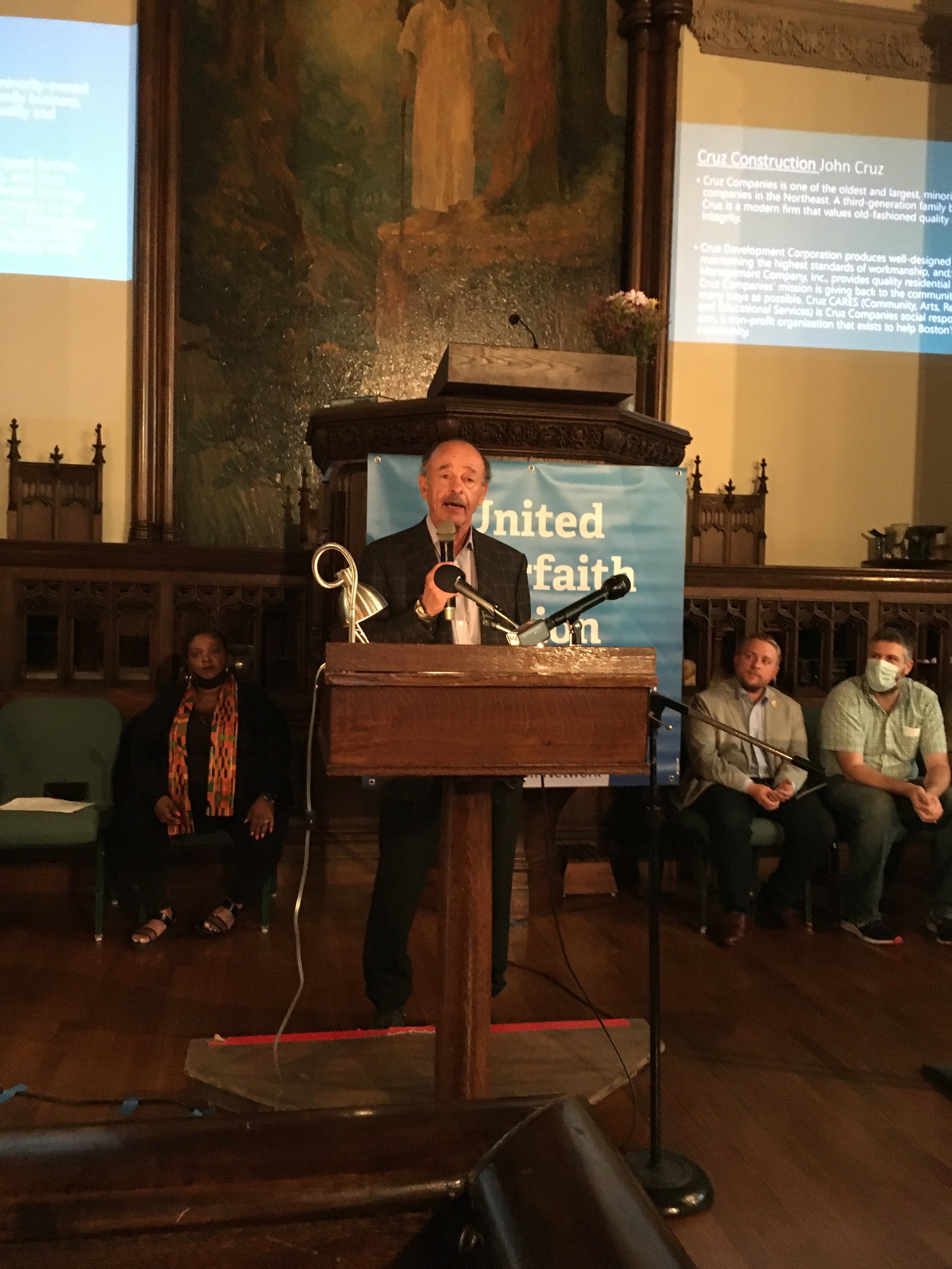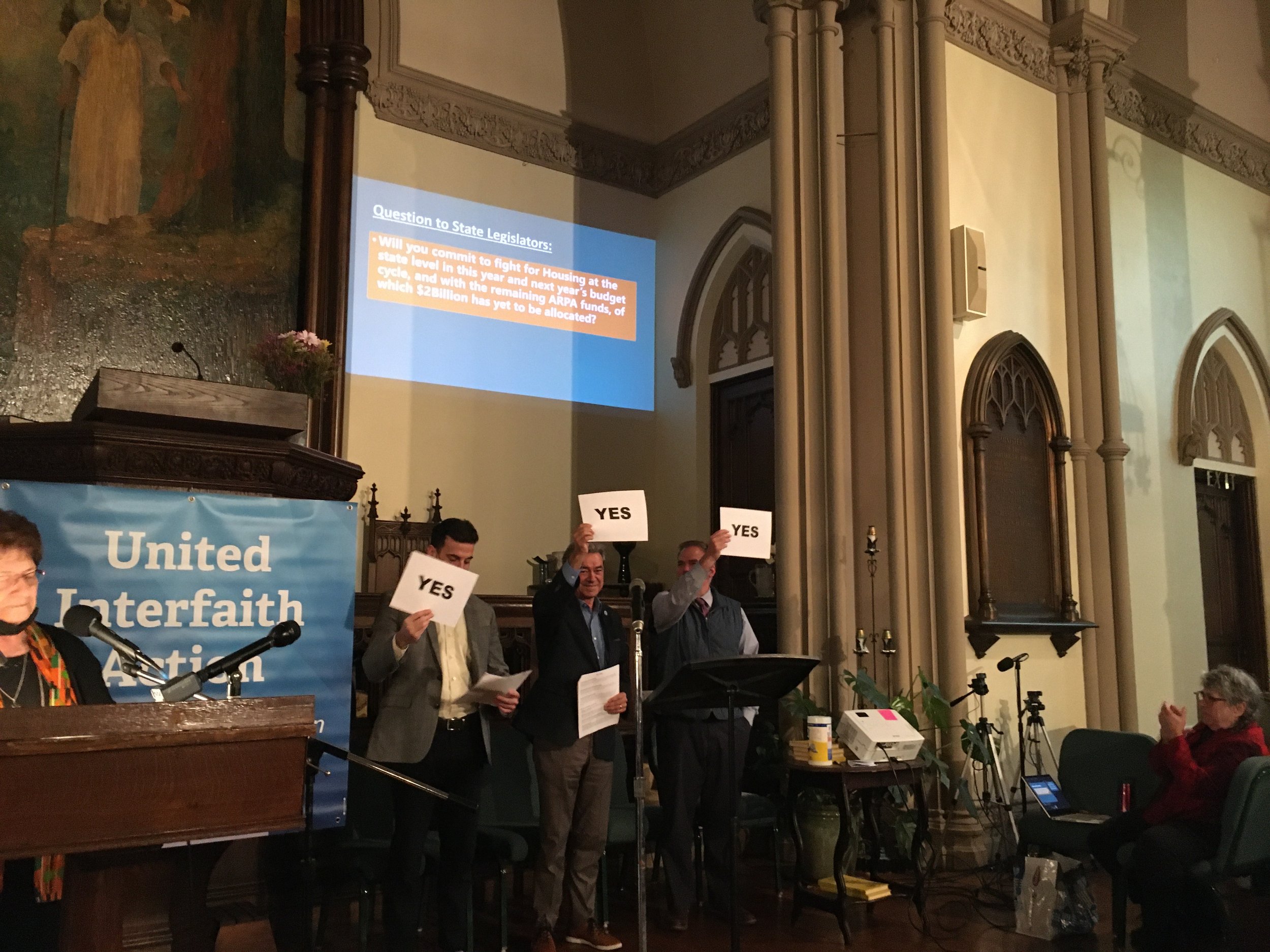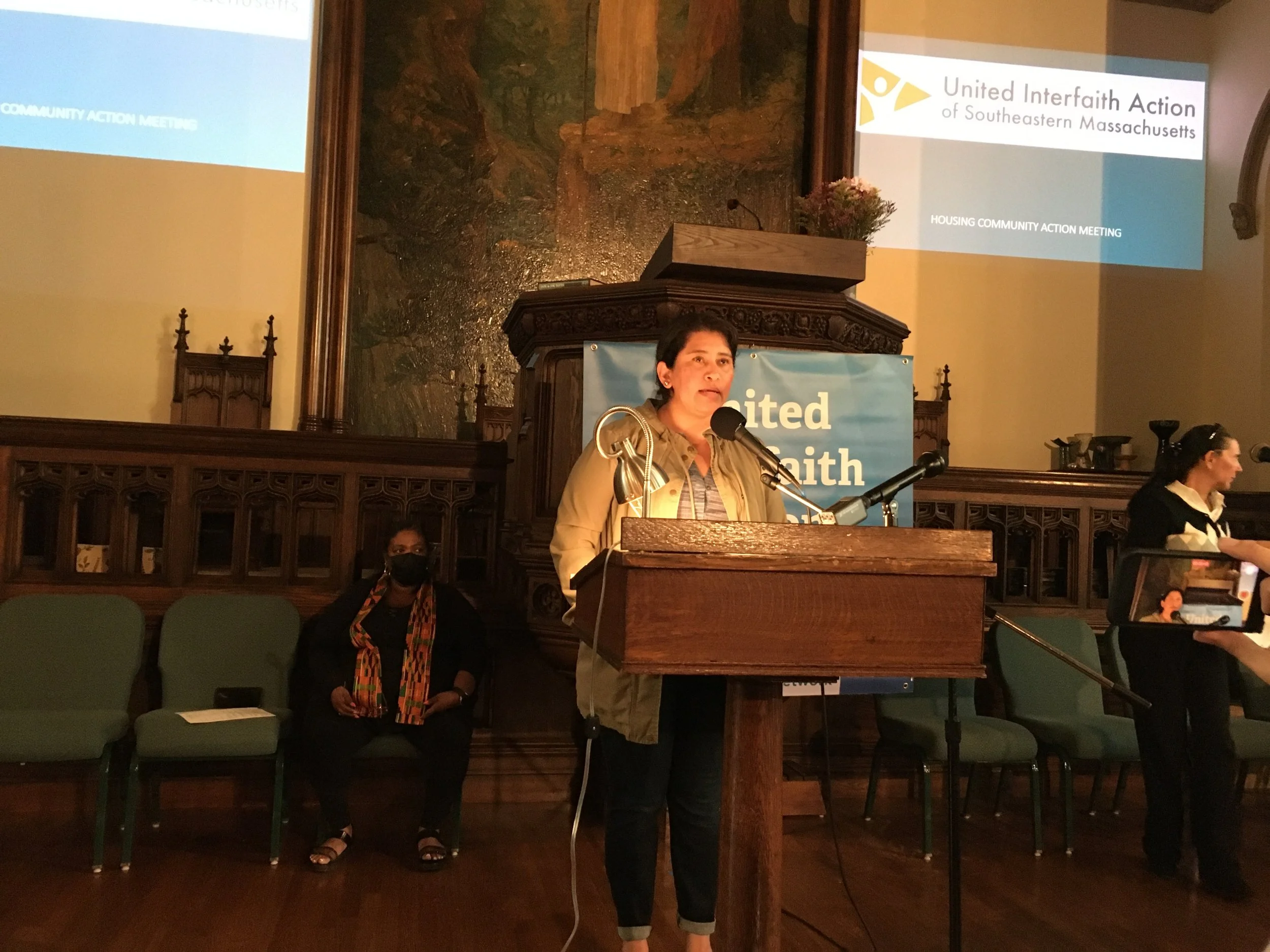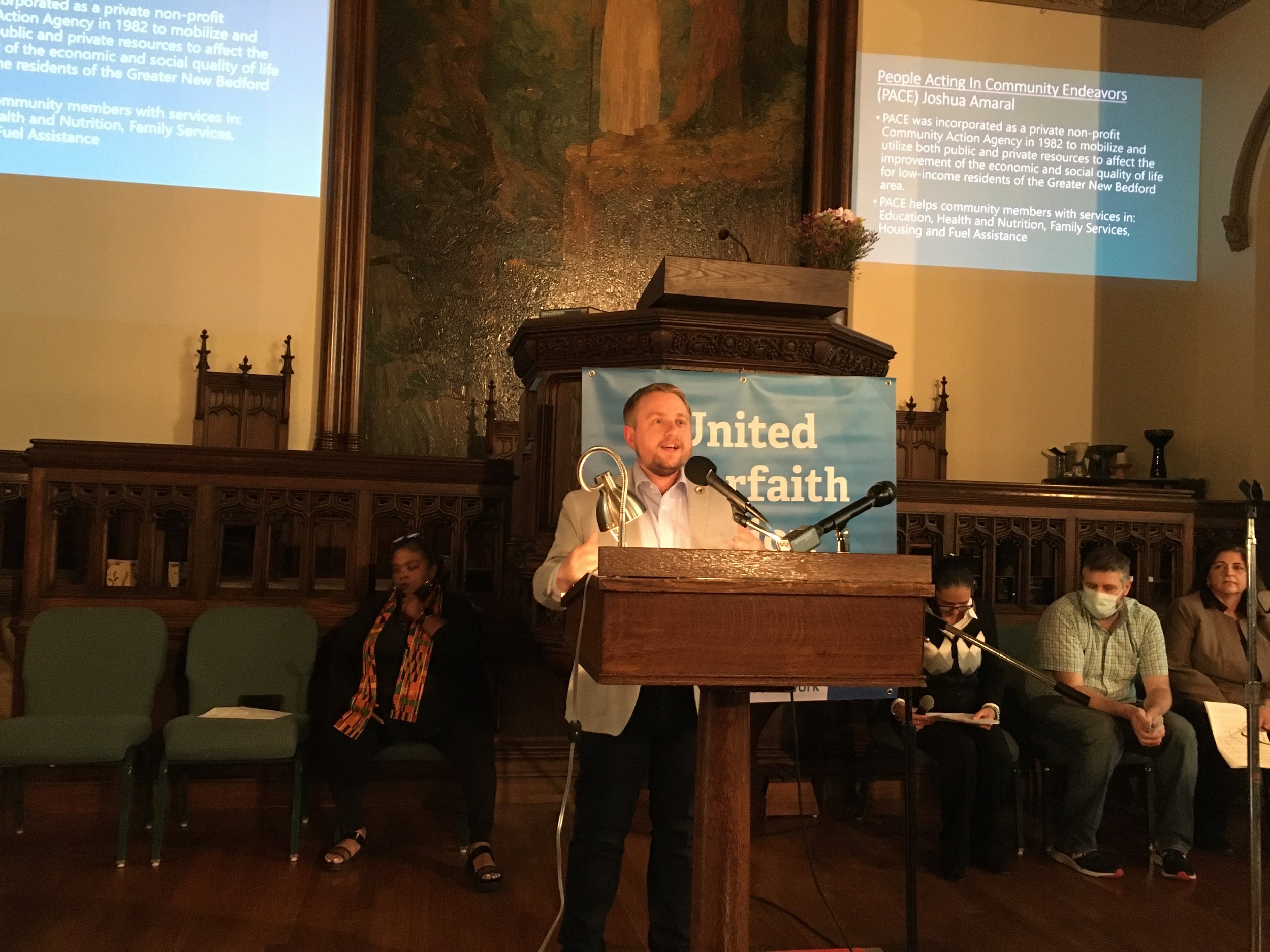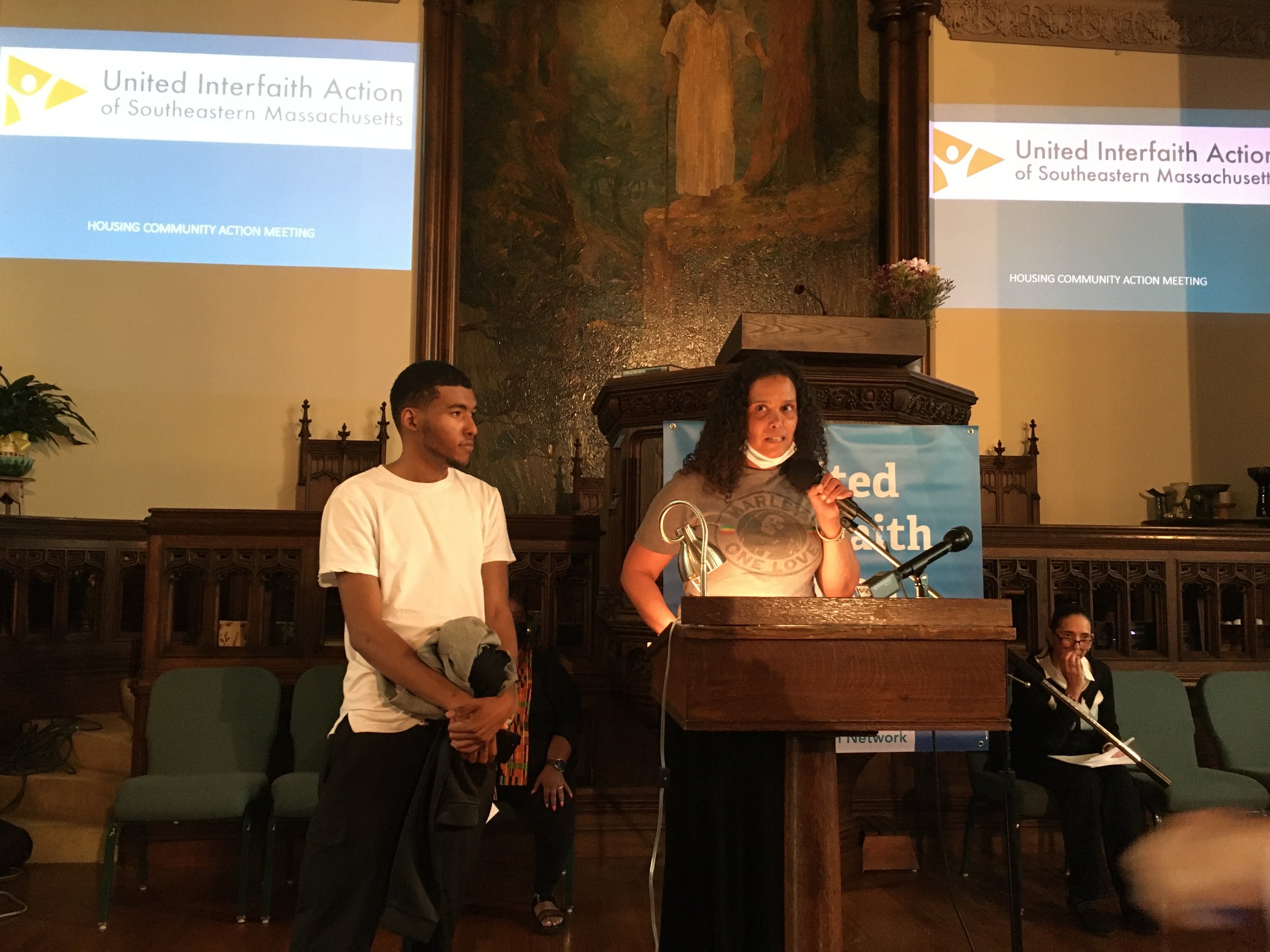UIA NEW BEDFORD HOLDS ACTION ADDRESSING THE CITY’S HOUSING CRISIS
Video and Article by Kevin G. Andrade, Standard-Times
““Housing insecurity impacts so many in our community. As a teacher in New Bedford, I have witnessed more times than I care to recall the impact that housing has on our children. I have had numerous homeless students over the years. Poverty does not discriminate. Many people live paycheck-to-paycheck. I also have friends suddenly displaced from their homes due to fires or faulty contracting work. One unexpected hardship for any of us can mean the difference between having a roof over our head or being on the streets.”
”
May 17th, United Interfaith Action of Southeastern MA (UIA) held a community action meeting on housing at the First Unitarian Church of New Bedford. With over 150 people in attendance, community members came together with elected officials, non-profit organizations, and representatives from the business community to address the housing crisis of increasing rents, rising home prices, and growing number experiencing homelessness and housing instability the City of New Bedford.
The focus of the community meeting was increased funding for housing both at the local and state level.
UIA offered five proposals to address housing and homelessness. Community members from younger to older generations shared testimonies about their housing struggles. Local non-profits (PACE, CEDC, and Catholic Social Services) and a large-scale developer (Cruz Companies) offered proposals of affordable and supportive housing development. Community stakeholders from the New Bedford Economic Development Council, Immigrants’ Assistance Center, and the City Council’s Committee on Affordable Housing and Homeless Affairs shared their support for housing prioritization and increased funding in the City.
City Councilor at Large, Shane Burgo, made a commitment to work to get the City Council to adopt an Inclusionary Zoning Policy requiring at least 10% of all market rate housing development be affordable. State Representatives Tony Cabral, Chris Hendricks, and Chris Markey committed to fight for housing at the state level in this and next year’s budget cycle and to prioritize housing with the State’s remaining ARPA Funds.
Mayor Jon Mitchell was invited in March but declined to come. Instead, he sent a representative in his place who shared some of the City’s current housing initiatives. However, the representative was not prepared to answer the focal question for the Mayor, asking him to commit to at least an additional $10M for Housing from funding sources such as the American Rescue Plan Act (ARPA), Community Preservation Act, and Community Development Block Grants.
At the close of the meeting, community members were invited to sign a letter expressing their concern for housing and the need for the Mayor to take additional actions to address the crisis. On the next day, May 18th, UIA invited members of the community to gather at 3pm at City Hall to deliver these letters to the Mayor and to request a meeting with him. The Mayor cannot ignore the housing crisis and the struggles of the residents of his city. Action is needed now!
I. HOUSING CRISIS in New Bedford that needs to be addressed.
o SEVERELY COST BURDENED: 23% of households are “severely cost burdened”, spending more than 50% of income on housing, much higher than the 14% statewide
o HUGE WAITLISTS FOR HOUSING: 4,131 people on New Bedford’s Section 8 (federal subsidy) waitlist; 4,378 on New Bedford’s MRVP (state subsidy) waitlist; 4,087 on the City’s waitlist for public housing
o DEVASTATING NUMBERS EXPERIENCING HOMELESSNESS:
o 2021 Point in Time Count: 372 individuals in shelters, transitional housing, or on the streets
o NB Public Schools: 1,298 students have experienced homeless during this school year, to date
o HIGHEST RATES OF EVICTION
o Bristol Co. has second highest eviction rate in MA: 1,073 since Oct 2020 (state moratorium end)
o New Bedford has the third highest eviction rate of cities/towns in MA: 357 since Oct 2020
II. Community Organizations & State Legislature stepping up to help on the affordable housing crisis
o People Acting in Community Endeavors (PACE), the Community Economic Development Center (CEDC), Catholic Social Services (CSS), Immigrants’ Assistance Center (IAC), Positive Action Against Chemical Addiction, Inc (PAACA) and others are stepping up to address the housing crisis
o ALSO, the MA Legislature has passed $1Billion+ this year for housing funding.
III. Mayor Mitchell needs to allocate additional funding to address the housing crisis from funding sources such as the American Rescue Plan Act (ARPA), the Community Preservation Act, and Community Development Block Grants. The need is great. If the City commits more funding, it will leverage more matching state money.
Funding Proposals for the City
What can $10Million do for housing?
UIA is asking the Mayor to increase spending for housing by $10M with federal COVID relief funds (ARPA) and other state and local funds (ex. CPA – Community Preservation Act and CDBG - Community Development Block Grants)
Housing Stabilization for Renters $1.5M
o Create a City Emergency Housing Fund of rental subsidies to prevent evictions/foreclosures
o Create a Legal Services Fund to hire additional lawyers for representation in eviction cases
Creation or substantial renovation of more affordable housing. $5M
o Provide “seed money” to community organizations creating affordable housing
o Create a New Bedford Affordable Housing Development Fund to be used for acquisition, rehabilitation, and development costs, to be matched by State and federal housing monies (The MA State Legislature has already allocated $1Billion of state ARPA Funds to housing, which is eligible to come to our cities).
Home Ownership Opportunities for low-to-moderate income families $1M
o Increase funding for first-time homebuyer grants for down-payment and closing cost assistance
Address Homelessness $2.5M
o Increase funding for supportive housing for those experiencing homelessness

